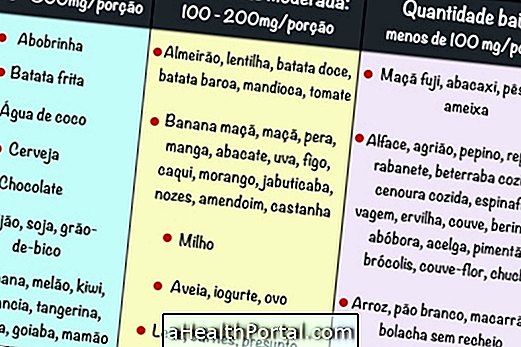Cow's milk should only be given to the baby after it reaches 1 year of age, because before that your gut is still too immature to digest this milk, which can end up causing problems like diarrhea, allergies and low weight.
Until the first year of life, the child should only breastfeed or consume special age-appropriate dairy formulations, according to the advice of the pediatrician or nutritionist.

Problems that cow's milk can cause
Cow's milk has complex, hard-to-digest proteins, which end up hitting the intestinal cells and causing problems such as:
- Malabsorption of nutrients;
- Intestinal bleeding, with or without visible blood in the stool;
- Diarrhea or very soft stools that do not improve texture;
- Anemia, especially by reducing the absorption of iron in the intestine;
- Constant cramps;
- Allergy to milk and its derivatives;
- Low weight because the baby can not have the calories and nutrients needed for growth.
In addition, cow's milk does not have a good fat composition for this stage of baby's life, and is also very rich in sodium, which can end up overloading the child's kidneys. It was like having more milk to feed the baby.
Difference between Infant Formula and Cow's Milk

Although usually made from cow's milk, infant formulas are prepared in a way that facilitates the baby's digestion and meets all of your nutritional needs. They are made to look like breast milk, but no infant formula is as good and suitable for the newborn as breast milk.
If necessary, children's formula should be used only according to the pediatrician's orientation, and it is important to be on the label of the product, which should have the word formula instead of milk.
Vegetable milks should also be avoided
In addition to avoiding cow's milk, it is also important to avoid giving vegetable milks such as soy milk, oats or almonds to the baby, especially in the first year of life. These milk do not contain all the nutrients needed for proper growth and development of the child, and may harm his weight gain, height growth and intellectual capacity.
However, it is important to remember that some infant formulas are made from soybeans, having special composition that fits the baby's needs. They should be prescribed by the pediatrician, and are usually needed in cases of allergy to milk.























